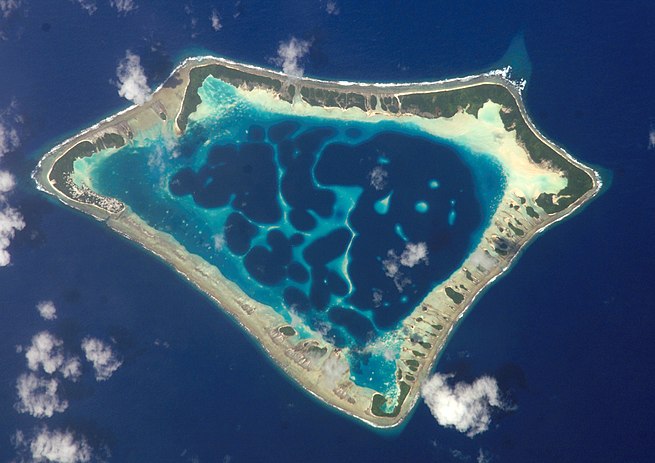
Main Difference
The main difference between Island and Peninsula is that the Island is a sub-continental land that is surrounded by water and Peninsula is a piece of land that is bordered by water on three sides but connected to mainland
-
Island
An island or isle is any piece of sub-continental land that is surrounded by water. Very small islands such as emergent land features on atolls can be called islets, skerries, cays or keys. An island in a river or a lake island may be called an eyot or ait, and a small island off the coast may be called a holm. A grouping of geographically or geologically related islands is called an archipelago, such as the Philippines, for example.
An island may be described as such, despite the presence of an artificial land bridge; examples are Singapore and its causeway, and the various Dutch delta islands, such as IJsselmonde. Some places may even retain “island” in their names for historical reasons after being connected to a larger landmass by a land bridge or landfill, such as Coney Island and Coronado Island, though these are, strictly speaking, tied islands. Conversely, when a piece of land is separated from the mainland by a man-made canal, for example the Peloponnese by the Corinth Canal or Marble Hill in northern Manhattan during the time between the building of the United States Ship Canal and the filling-in of the Harlem River which surrounded the area, it is generally not considered an island.
There are two main types of islands in the sea: continental and oceanic. There are also artificial islands.
-
Peninsula
A peninsula (Latin: paeninsula from paene “almost” and insula “island”) is a piece of land surrounded by water on the majority of its border, while being connected to a mainland from which it extends. Examples are the Upper and Lower peninsulas of the U.S. state of Michigan, the Scandinavian Peninsula and the Malay peninsula. The surrounding water is usually understood to be continuous, though not necessarily named as a single body of water. Peninsulas are not always named as such; one can also be a headland, cape, island promontory, bill, point, or spit. A point is generally considered a tapering piece of land projecting into a body of water that is less prominent than a cape. A river which courses through a very tight meander is also sometimes said to form a “peninsula” within the (almost closed) loop of water. In English, the plurals of peninsula are peninsulas and, less commonly, peninsulae.
-
Island (noun)
A contiguous area of land, smaller than a continent, totally surrounded by water.
-
Island (noun)
An entity surrounded by other entities that are very different from itself.
“an island of tranquility (a calm place surrounded by a noisy environment)”
“an island of colour on a butterfly’s wing”
-
Island (noun)
A superstructure on an aircraft carrier’s deck.
-
Island (noun)
A traffic island.
“the island in the middle of a roundabout”
-
Island (noun)
An unincorporated area wholly surrounded by one or more incorporated areas.
-
Island (noun)
A phrase from which a wh-word cannot be extracted without yielding invalid grammar.
-
Island (verb)
To surround with water; make into an island.
-
Island (verb)
To set, dot (as if) with islands.
-
Island (verb)
To isolate.
-
Peninsula (noun)
A piece of land projecting into water from a larger land mass.
“byland|cape|chersonese|half-island|headland|ness”
-
Peninsula (noun)
a piece of land almost surrounded by water or projecting out into a body of water.
